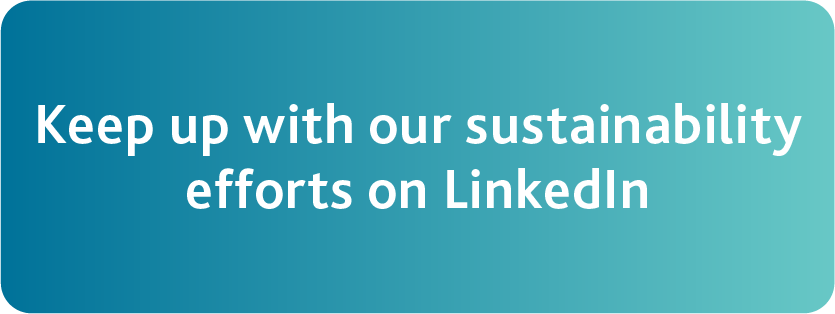We envision a future where every day is Earth Day.
This year, the Eastman team celebrates Earth Day 2022 with a heightened sense of purpose and commitment. Our sustainability journey began years ago, but that journey is accelerating like never before with far-reaching commitments to address such areas as climate change, material circularity, and caring for people and society.
Earth Day celebrates the planet we call home. And that leads our team back to Eastman’s sustainability report, published just five months ago. Why title the report "A Better Circle"? It’s a good question, and we have a good answer. We are united as a global team to build a better circle—a better planet for all—and the report includes the most far-reaching sustainability commitments in company history. Eastman invites you to read it and join us in building a better circle so that, for generations to come, every day is Earth Day. #EveryDayIsEarthDay
What does Earth Day mean to you?
Much like human society, a honeybee colony can only prosper when individuals work together for the greater good. The survival of a bee colony depends on the worker bees, drones, and queen each doing their part. Similarly, when humanity needs to make a big change to improve the world, it requires each and every one of us to make a commitment if we want to succeed.
When you think about what Earth Day means to you, consider things you can realistically do as one of the incredibly important “worker bees” to make the hive we call Earth a better place. At Eastman, we know that many people don’t know where the plastics they discard every day actually end up (even if they put them in a recycling bin). Learning the facts about plastic recycling is a great place to start.
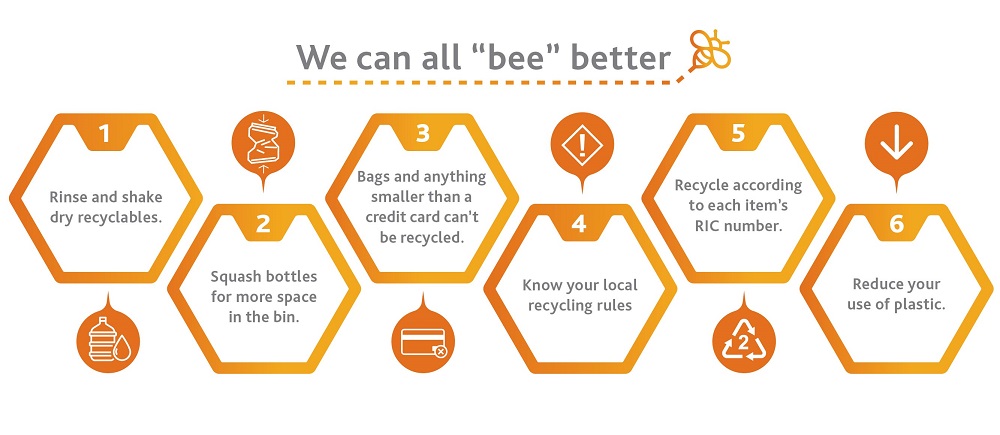
Let's talk sustainability. Submit the form to let us know you want to learn more.
Earth Day is all about celebrating the planet we call home. And that leads our team back to Eastman’s sustainability report, published just five months ago. Why title the report "A Better Circle"? It’s a good question, and we have a good answer. We are united as a global team to build a better circle — a better planet for all — and the report includes the most far-reaching sustainability commitments in company history. Eastman invites you to read and join us in building a better circle so that, for generations to come, #EveryDayIsEarthDay.
Together, we can create a true circular economy. Are you in?
At Eastman, we're revolutionizing recycling with our material-to-material molecular recycling technologies, but it's going to take all of us working together to find a solution to the plastic and climate crisis. Are you in?

Mitigating climate change starts with energy efficiency, which is why the ENERGY STAR® program is so important at Eastman. Learn more about why we have received the ENERGY STAR ® Partner of the Year eight times and were the first chemical company to receive Sustained Excellence recognition.
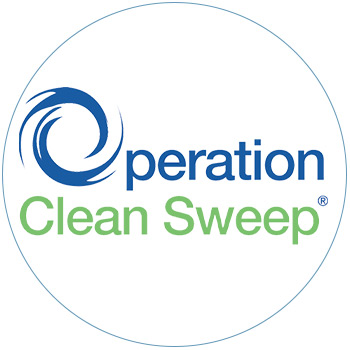
We approach everything we do at Eastman with a zero-incident mindset, and that includes striving toward zero waste. We’re proud to be members of Operation Clean Sweep, an international program designed to prevent the loss of plastic granules from the production process.
What is Eastman doing for the Earth?
As our strategic focus has also sharpened, we have now converged on three critical impact areas where we have a responsibility to lead and provide solutions – the global plastic waste crisis, climate change, and caring for society. This collective sense of purpose at Eastman is why Environmental Social Governance (ESG) is a natural framework for our strategy, as it creates long-term value for all our shareholders and has a positive impact on the global society. The more we grow, the broader our impact becomes.
Today, trust and transparency are more important than ever. This governs how we report on our culture through measuring advancements in our Inclusion & Diversity efforts, our operational excellence and how we manage a sustainable product portfolio.
Across our company, we integrate ESG into everything we do to ensure long-term business success.

Enabling a circular economy
Our experts are pioneering the shift to circular materials. Right. Now. We’re revolutionizing our materials to give them an infinite life and richer purpose using our two Advanced Circular Recycling technologies—carbon renewal and polyester renewal. This takes passionate problem-solving, world-class technologies, and a willingness to advocate for smart legislation.

What is Eastman doing for the Earth?
As our strategic focus has sharpened, we have converged on three critical impact areas where we have a responsibility to lead and provide solutions—the global plastic waste crisis, climate change, and caring for society. This collective sense of purpose at Eastman is why environmental, social, and governance (ESG) is a natural framework for our strategy, creating long-term value for all our shareholders and having a positive impact on global society. The more we grow, the broader our impact becomes.
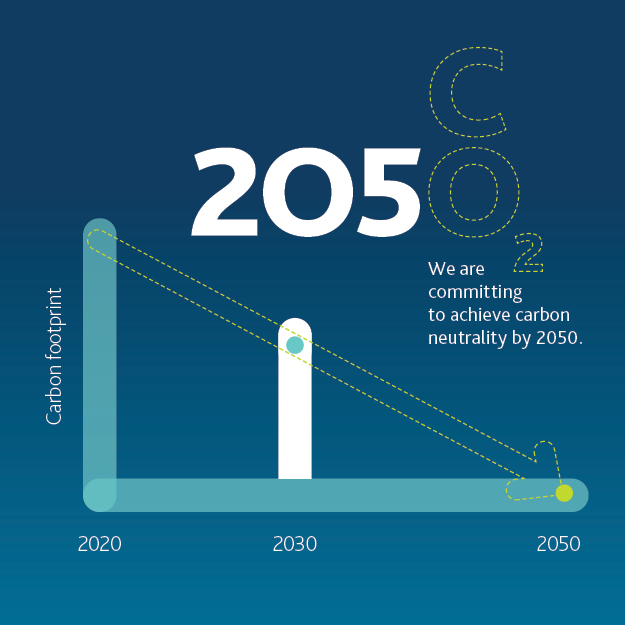 Today, trust and transparency are more important than ever. This governs how we report on our culture by measuring advancements in our inclusion and diversity efforts, our operational excellence, and how we manage a sustainable product portfolio.
Today, trust and transparency are more important than ever. This governs how we report on our culture by measuring advancements in our inclusion and diversity efforts, our operational excellence, and how we manage a sustainable product portfolio.
Across our company, we integrate ESG into everything we do to ensure long-term business success.
Learn more about ESG efforts
 “We’ve developed a strategic platform and goals that will guide us in prioritizing three critical impact initiatives: mitigating climate change, mainstreaming circularity, and caring for society. We think of this as innovating for what we call ‘a better circle.’ This platform gives us a framework to deliver on the promise of our purpose statement, now and for generations to come.”
“We’ve developed a strategic platform and goals that will guide us in prioritizing three critical impact initiatives: mitigating climate change, mainstreaming circularity, and caring for society. We think of this as innovating for what we call ‘a better circle.’ This platform gives us a framework to deliver on the promise of our purpose statement, now and for generations to come.”
Three ways molecular recycling complements mechanical recycling
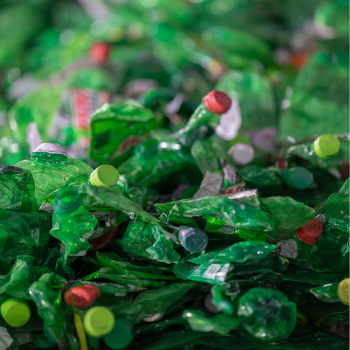
The world desperately needs a materials revolution that will help address the global plastic waste and climate crises. Mechanical and molecular recycling are two very different approaches to recycling with clearly different benefits. However, when it comes to solving these crises, there are three ways material-to-material molecular recycling can complement mechanical recycling.
Download the report here
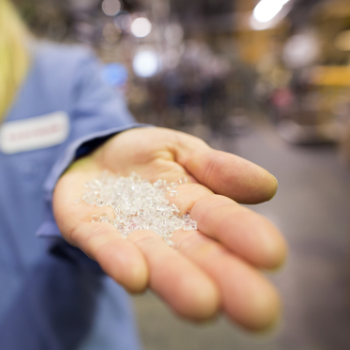
How to communicate with consumers about chemical recycling solutions
Hear how Eastman and Stanley Black & Decker teamed up by using consumer insights to introduce the world’s first line of power tools with TritanTM Renew, offering 50% certified recycled content allocated via mass balance. This case study unpacks the hurdles and challenges they overcame and explores the innovative solutions and strategies they employed to go to market.
|
|
Help make Earth Day every day!
Help make Earth Day every day, all year.
 |
 |
|
| Mitigating climate change starts with energy efficiency, which is why the ENERGY STAR® program is so important at Eastman. Learn why we have received the ENERGY STAR® Partner of the Year eight times and were the first chemical company to receive Sustained Excellence recognition. |
We approach everything we do at Eastman with a zero-incident mindset and that includes striving toward zero waste. We’re proud to be a member of Operation Clean Sweep, an international program designed to prevent the loss of plastic granules from the production process. |



